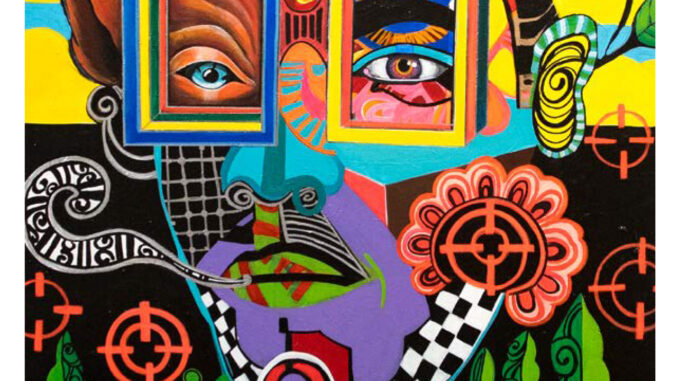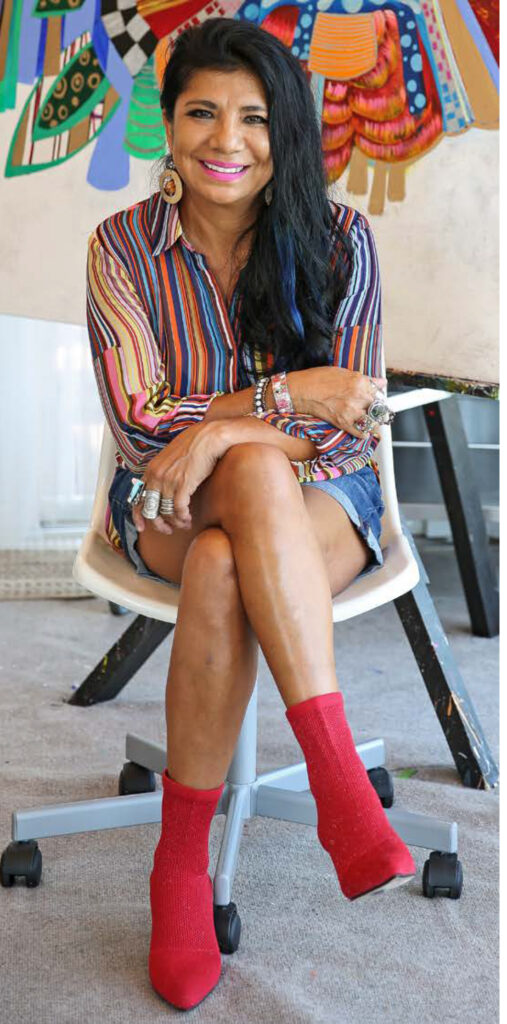
By Angela M. Haigler
Rosalia Torres-Weiner is a creative force of nature. Her determination to express herself creatively was evident early, as she used her art to entertain her siblings in a tumultuous family environment. In her teens, she told her parents she wanted to be an artist. No, they told her. She must obtain a degree first like her sisters who had become a lawyer and doctor. She complied, handed them her Business Administration degree and said, “I’m going to America where dreams come true.” She soon left Mexico, but the memories and images of her homeland would forever influence her art.
Once in the U.S., Torres-Weiner worked extremely hard to realize her dreams. Eventually she used her natural talents to illustrate the faces of hotel guests on her job as a hotel housekeeping manager. Her detailed cartoon figures became a hit when her coworkers smiled and gestured, saying she captured the essence of the guests perfectly, helping them to associate names with faces.
She and her husband moved from Los Angeles to Charlotte to raise their family. When her children were small, she created a bedroom wall mural as a birthday present. This action made an impression on her daughter who shared her parents’ occupations when asked: “My dad fixes computers and my mom is a famous artist.” Little did her daughter know that her innocent proclamation would become a reality for her mother, whose work has since been featured in the Smithsonian, on the cover of National Geographic magazine, in history books and whose activities would coin a term, “Artivist.”
Torres-Weiner created the term as way to combine her passions of art and activism. Her colorful designs have become her signature. Her desire to take art into underserved communities has become her guiding light. As a home mural designer, she traded her commercial artist van for an art studio, and eventually went mobile with an art truck. The Red Calaca Mobile Art Studio allowed her to take art to the people, often visiting immigrant communities where many lived in fear. Children would enter the mobile art studio, interact with the art and create pieces of their own. She operated the Red Calaca Mobile Art Studio to much success for three and a half years. However, Torres-Weiner will be retiring the truck this summer. The truck will live on as a tool for art students at Winthrop University.
As a recipient of a North Carolina Council of the Arts cARTwheels performance and residency grant, she will be expanding her message beyond Mecklenburg County. Torres-Weiner hopes that the children who encounter her message will leave seeing the possibilities that exist for them. “When I see students who look like me,” she said, “I want them to say, ‘She’s brown, she’s a Mexicana, she’s a Latina, and she is a mom who is a well-established artist. Maybe I can do this.’ ”
Torres-Weiner is proud of the body of work she has created to tell the stories of Charlotte’s LatinX community. Her programs and projects include the Papalote Project, The Magic Kite and Day of the Dead Charlotte.
To learn more about Rosalia Torres-Weiner visit
redcalacastudio.com/
To view the movie based on her book and one woman show, “The Magic Kite” visit: youtube.com/watch?v=2fcRua0CmjY

